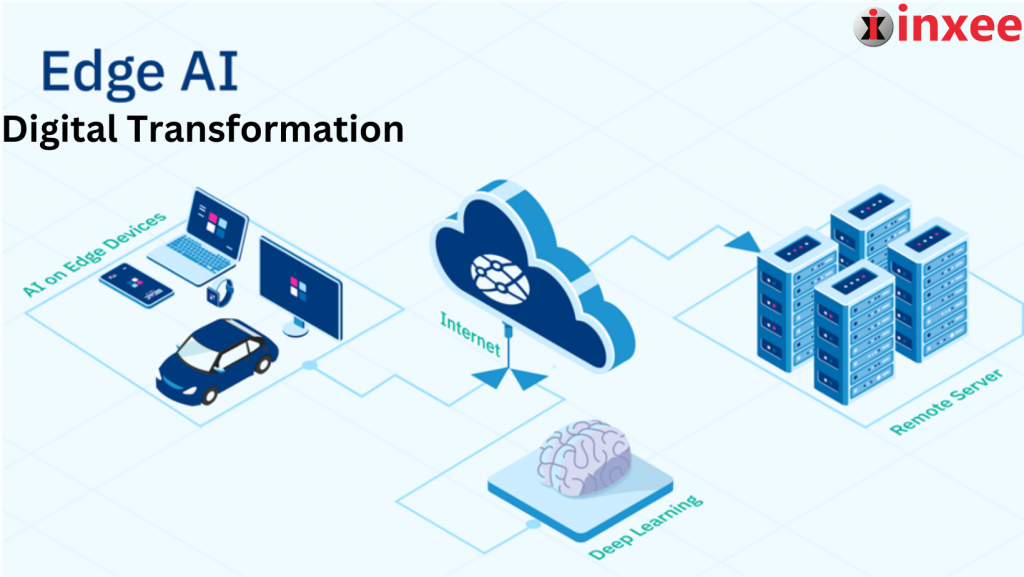AI on Edge: Enabling Digital Transformation
Edge AI refers to the deployment of artificial intelligence (AI) algorithms and models directly on edge devices, such as smartphones, IoT devices, or edge servers, rather than relying solely on cloud-based AI processing. It brings the power of AI to the edge of the network, closer to where data is generated, allowing for real-time and localized decision-making.
Here are some key aspects of edge AI:
- Real-Time Processing: Edge AI enables real-time processing and analysis of data at the edge, eliminating the need to send data to the cloud for processing. This reduces latency and enables faster response times, making it ideal for applications that require immediate actions, such as autonomous vehicles, industrial automation, or healthcare monitoring.
- Privacy and Security: Edge AI helps address privacy and security concerns by processing data locally on edge devices without transmitting sensitive information to the cloud. This ensures data privacy and reduces the risk of data breaches or unauthorized access.
- Bandwidth Optimization: Edge AI reduces the amount of data that needs to be transmitted over the network by processing and filtering data locally. This helps optimize bandwidth usage and reduces reliance on expensive and high-speed network connections, making it suitable for resource-constrained environments.
- Offline Capabilities: Edge AI enables devices to perform AI tasks even when they are offline or have limited connectivity. By having AI models deployed locally, devices can continue to operate autonomously and make decisions without relying on cloud connectivity.
- Scalability and Reliability: Edge AI enables distributed computing, where multiple edge devices collaborate and share computational load. This improves scalability and reliability by reducing the dependency on centralized cloud servers and distributing the processing across the network.
- Energy Efficiency: Edge AI reduces the energy consumption associated with transmitting data to the cloud for processing. By processing data locally, energy-efficient algorithms can be implemented, optimizing power usage and extending the battery life of edge devices.
Edge AI is transforming various industries, including smart cities, healthcare, manufacturing, and retail. It enables intelligent decision-making, real-time analytics, and automation at the edge, unlocking new possibilities and driving innovation. As edge computing capabilities continue to advance, the adoption of edge AI is expected to grow, enabling smarter and more autonomous systems.










Leave a Reply